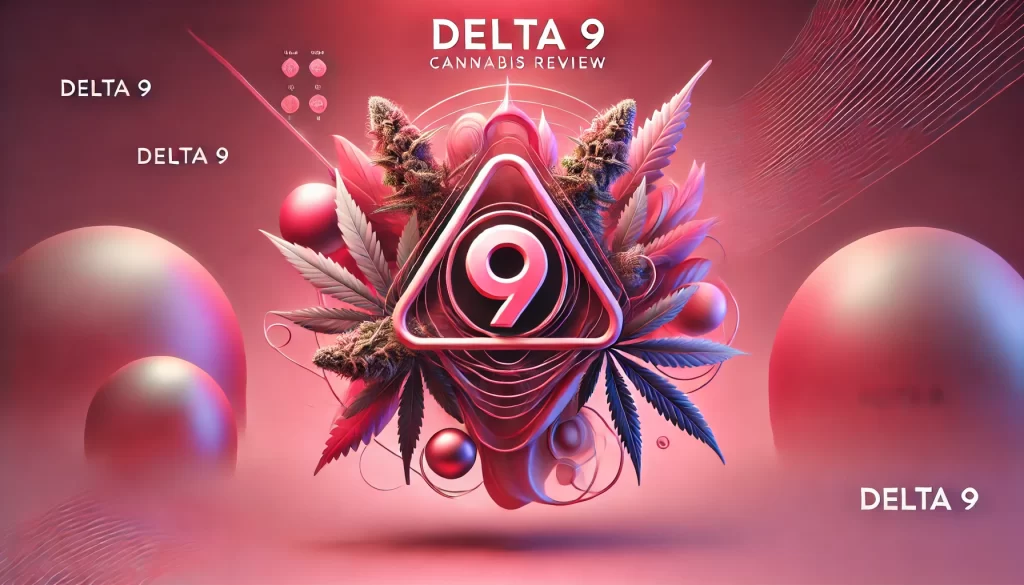Delta-9 THC remains one of the most studied and popular cannabinoids in the cannabis world. Known for its psychoactive effects, it has also gained attention for its potential therapeutic applications. But what sets it apart from other compounds like CBD or Delta-8? What are its real benefits, and what precautions should you take?
In this guide, we’ll cover everything you need to know about Delta-9 THC, from how it works to its legal status in 2025.
What Is Delta-9 THC?
Delta-9 tetrahydrocannabinol (THC) is the primary psychoactive compound in cannabis. Unlike CBD, which doesn’t produce a “high,” Delta-9 interacts directly with CB1 receptors in the endocannabinoid system, leading to effects like euphoria, relaxation, and altered sensory perception.
Key Facts:
- Source: Naturally found in marijuana and in smaller concentrations in hemp.
- Potency: Stronger than Delta-8 THC but with more balanced effects compared to synthetic cannabinoids.
- Common Uses: Recreation, pain relief, appetite stimulation, and sleep improvement.
Delta-9 vs. Delta-8 vs. CBD: A Comparison
| Cannabinoid | Psychoactive? | Potency | Primary Uses |
|---|---|---|---|
| Delta-9 THC | Yes | High | Pain, anxiety, sleep |
| Delta-8 THC | Mildly | Moderate | Relaxation, stress |
| CBD | No | None | Anxiety, inflammation |
Note: Delta-8 is ideal for those seeking milder effects, while Delta-9 is preferred by users with higher tolerance or specific medical needs.
Benefits of Delta-9 THC
- Chronic Pain Relief
- Studies suggest it can modulate pain signals in the nervous system, making it useful for conditions like arthritis or fibromyalgia.
- Appetite Stimulation
- Known as the “munchies” effect, it helps cancer patients or those with eating disorders.
- Anxiety Reduction (in Low Doses)
- Moderate amounts promote relaxation, though high doses may increase anxiety.
- Improved Sleep
- Indica strains are popular for combating insomnia and promoting deep sleep.
Potential Side Effects
While many enjoy Delta-9 without issues, some adverse effects include:
- Dry mouth and red eyes
- Temporary increased heart rate
- Anxiety or paranoia (with excessive use)
- Short-term memory impairment
Tips to Minimize Risks:
✔ Hydration: Drink water before and after consumption.
✔ Dosage: Start with 2-5 mg if you’re a beginner.
✔ Setting: Use in a safe, relaxed environment.
How to Consume It
- Edibles (Gummies, Chocolates)
- Long-lasting effects (4-12 hours), ideal for beginners.
- Vaping
- Fast-acting (5-10 minutes), but be cautious of product quality.
- Flower (Smoked or Vaporized)
- Full-spectrum effects, but not recommended for long-term lung health.
- Sublingual Tinctures
- Precise dosing and quick absorption.
Legality in 2025
In the U.S., hemp-derived Delta-9 (<0.3% THC) is federally legal, but regulations vary:
- Legal in: California, Colorado, Michigan, and others.
- Restricted in: Texas (medical only) and Idaho (fully banned).
Canada: Fully legal under the Cannabis Act.
Recommended Dosages
| Experience Level | Suggested Dose | Expected Effects |
|---|---|---|
| Beginner | 2-5 mg | Mild relaxation |
| Intermediate | 5-15 mg | Moderate euphoria |
| Advanced | 15-30 mg+ | Intense effects |
Warning! Edibles can take up to 2 hours to kick in—avoid redosing too soon.
Frequently Asked Questions
🔹 Is Delta-9 legal in my state?
Check local laws, as regulations are constantly changing.
🔹 Can it help with back pain?
Yes, many users report relief due to its anti-inflammatory properties.
🔹 Is it addictive?
The risk of dependence is low, but excessive use can lead to tolerance.
🔹 What’s the difference between Delta-8 and Delta-9?
Delta-9 is more potent, while Delta-8 offers a smoother experience.
Final Thoughts
Delta-9 THC is a versatile option for both recreational and therapeutic use. However, responsible consumption is key: start with low doses, choose high-quality products, and know your limits.
Have you tried Delta-9? Do you prefer Delta-8 or CBD? Share your thoughts in the comments!

